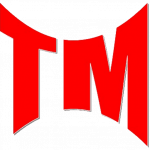There’s an old story that’s followed the United States for generations — one that dates back to the brutal winter at Valley Forge in 1777.
According to the legend, George Washington once described a mysterious encounter with an angelic figure who showed him three great trials America would face.
The first two — the Revolution and the Civil War — have long been woven into the fabric of history.
But the third vision, the one people still whisper about, warned of a future moment when foreign forces would cross the seas, bringing conflict directly to American shores.
Why the Prophecy Has Suddenly Returned
Fast-forward to today, and that centuries-old prophecy has suddenly become a talking point again.
As former President Donald Trump directs one of the largest U.S. military buildups in the Caribbean since the Cold War, some Americans are drawing eerie connections between the past and the present.
Ryan Bledsoe, a podcaster known for exploring supernatural themes, reminded his audience of Washington’s mysterious vision this week. He said senior members of the military had brought it to his attention.
According to Bledsoe, the prophecy described a moment when powerful enemies “from the east” cross the ocean in an effort to bring war to America — something he believes is worth watching closely as global tensions rise.
A Growing U.S. Military Presence Near South America
Meanwhile, the real-world situation is unfolding rapidly.
At least seven U.S. warships are now positioned in the Caribbean, and Defense Secretary Pete Hegseth has just introduced a new military initiative called Operation Southern Spear.
This expansion comes as the administration continues its aggressive campaign against what it calls narco-terror organizations operating in South America.
Inside the High-Level White House Strategy Meetings
For the second day in a row, Trump met with his top military and national security advisors inside the White House to discuss potential operations against Venezuela.
Reporters confirmed that the room included:
-
Vice President JD Vance
-
Secretary of State and National Security Advisor Marco Rubio
-
Deputy Chief of Staff Stephen Miller
-
Chairman of the Joint Chiefs Dan “Raizin” Caine
-
Defense Secretary Pete Hegseth
The administration says 75 suspected narco-terrorists have been killed since these operations intensified following Trump’s return to office.
Hegseth Defends the Strikes and Announces the New Mission
Hegseth publicly announced the new operation on social media, saying the United States is acting to protect its homeland from drug-smuggling networks.
He wrote that Joint Task Force Southern Spear and SOUTHCOM are leading the mission, which he says is designed to dismantle dangerous networks across the Western Hemisphere.
“The Western Hemisphere is America’s neighborhood — and we will protect it,” he said.
International Criticism Sparks Sharp U.S. Response
Not everyone is aligned with Washington’s approach.
France’s foreign minister, Jean-Noel Barrot, suggested the U.S. strikes violate international law — especially because France maintains territories in the region.
Rubio fired back quickly, arguing that European nations don’t get to define American national security policy.
He criticized European nations for depending on U.S. weapons while questioning how America positions its own forces.
The Strikes and Their Controversy
The Pentagon says its forces have struck 19 drug-smuggling vessels in the Caribbean Sea and the eastern Pacific since early September.
Two of those strikes were carried out last weekend under Trump’s orders, killing six people the administration labels as narco-terrorists.
According to Hegseth, both vessels were allegedly transporting narcotics, though U.S. officials have not publicly released evidence confirming the type of drugs or the precise locations in international waters.
Critics — including several Democrats in the Senate — say this lack of transparency raises concerns.
Some lawmakers argue that these targeted killings could amount to extrajudicial actions if not properly justified.
Growing Political Pressure Inside Washington
Lawmakers are now demanding detailed legal explanations from:
-
Secretary of State Marco Rubio
-
Intelligence Director Tulsi Gabbard
-
Defense Secretary Pete Hegseth
They want clarity on the legal basis for the strikes and a list of groups the administration is now treating as lawful targets of force.
Trump Stands Firm on His Position
The administration insists it has broad support from the public and argues that the United States is engaged in an ongoing conflict against drug cartels threatening American lives.
Trump has consistently said that cartels operating in Mexico and Venezuela pose a major threat and must be confronted with military force when necessary.
A Debate That’s Only Getting Louder
Between Washington’s centuries-old prophecy resurfacing and today’s escalating geopolitical tensions, the conversation around America’s future is becoming more intense.
Whether the two are related depends on who you ask — but the spotlight on the Caribbean, Venezuela, and America’s role in the hemisphere is brighter than ever.

